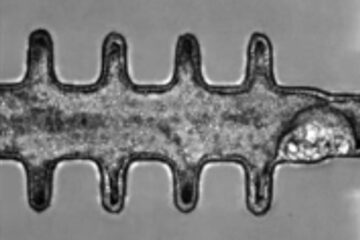Helping the elderly beat the heat

News tips from the Harvard Health Letter
As the population ages, a growing number of people become more vulnerable to extreme summer heat. In 2003, a heat wave was blamed for 14,800 deaths in France. The July issue of the Harvard Health Letter offers tips for the elderly to beat this summer’s heat. In addition to heading for the air conditioning, staying out of the sun, and wearing loose, light clothes:
Review your Medications
Painkillers, for example, can reduce awareness of the heat. Talk to your doctor about your medications if temperatures are climbing, especially if you’re not protected by air conditioning. Older people are also more likely than younger folks to be taking medications that cause fluid loss (and therefore dehydration), including some laxatives, furosemide (Lasix) to counteract water retention, and other diuretics for blood pressure control.
Check Up on a Neighbor
Social isolation is a major risk factor for heat-related illness and death.
Stay Hydrated
Thirst declines with age, and older sweat glands don’t produce as much sweat as they used to. The sweat that is produced tends to contain more salt, and lack of salt in the body can lead to sudden drops in blood pressure.
Listen to your Body
Muscle cramps, fatigue, weakness, impaired concentration, confusion, lightheadedness, nausea, labored breathing, chest discomfort, and a rapid or erratic pulse can all be signs of trouble. If you feel ill — even just a little — get to a cool place, drink plenty of cool water, and seek medical help if you don’t improve promptly.
Media Contact
More Information:
http://www.hms.harvard.eduAll latest news from the category: Health and Medicine
This subject area encompasses research and studies in the field of human medicine.
Among the wide-ranging list of topics covered here are anesthesiology, anatomy, surgery, human genetics, hygiene and environmental medicine, internal medicine, neurology, pharmacology, physiology, urology and dental medicine.
Newest articles

Solving the riddle of the sphingolipids in coronary artery disease
Weill Cornell Medicine investigators have uncovered a way to unleash in blood vessels the protective effects of a type of fat-related molecule known as a sphingolipid, suggesting a promising new…

Rocks with the oldest evidence yet of Earth’s magnetic field
The 3.7 billion-year-old rocks may extend the magnetic field’s age by 200 million years. Geologists at MIT and Oxford University have uncovered ancient rocks in Greenland that bear the oldest…

Mini-colons revolutionize colorectal cancer research
As our battle against cancer rages on, the quest for more sophisticated and realistic models to study tumor development has never been more critical. Until now, research has relied on…





















